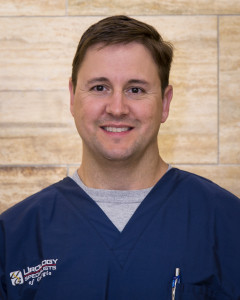Benign prostatic hyperplasia, also known as BPH, is a common condition affecting men as they age. BPH is an enlargement of the prostate gland that often causes bothersome urinary symptoms such as frequent urination, difficulty urinating, weak stream, and the inability to empty the bladder. The condition rarely affects men before the age of 40. However, 50% of men in their 60s and 90% of men in the 70-80s are affected by the condition. While the precise cause of BPH is unknown, it can most likely be contributed to changes in hormone levels such as testosterone and dihydrotestosterone. If left untreated, the urinary problems caused by BPH can lead to obstruction of the urinary tract.
Once the condition is diagnosed, there are several options for BPH treatment. Medications are the most common treatment for mild to moderate symptoms of prostate enlargement. If the symptoms are more aggressive, the urinary tract is in jeopardy, or the medications cause unwanted side effects, surgical therapy may be recommended. Traditionally, procedures such as the TURP (Transurethral Resection of the Prostate) and ablative procedures have been used to treat the condition. These procedures require incisions and thermal injury to the prostate, often leading to permanent side effects such as urinary incontinence, erectile dysfunction, and retrograde (dry) ejaculation.

Recently, the UroLift procedure, a minimally invasive surgery in which no incision or thermal therapy is used, is quickly becoming one of the best treatment options for the condition. The obstructive lobe of the prostate is transurethrally pushed aside and a small permanent UroLift implant holds the lobe, thus opening the urethra to alleviate the urinary symptoms while leaving the prostate gland intact. In a two-year randomized controlled UroLift study, symptoms, quality of life, and urinary flow improved rapidly and remained, with only 7.5% of men of having had the procedure needing additional BPH procedures. The urinary symptoms in those studied were effectively treated and not a single patient experienced erectile function or lost the ability to ejaculate. To compare, 65% of men undergoing traditional procedures such as the TURP lose the ability to ejaculate. Recovery from the UroLift procedure is usually very rapid with a return to normal activity within eight days.
Urology Specialists of Georgia is pleased to announce that Dr. Brian Geary has recently undergone training and is performing the UroLift procedure for our patients affected by BPH. Dr. Geary is finding much success with the procedure and is excited to offer this innovative option to our patients. If you or someone you know is experiencing BPH symptoms, call our office today to schedule an appointment for examination and diagnosis.
References:
